In preparing themselves for life as a music professional, our piano students are encouraged to develop their collaborative skills in many different ways:
- Performing in ensembles and orchestras
- Working with singers, instrumentalists and composers
- Accompanying choirs
- Generally learning how to integrate themselves into all areas of collaborative music-making
Graduate Dawn Hardwick recently returned to the College with her ensemble Piano Circus to work with students. We asked her about the importance of collaborative playing in her career:
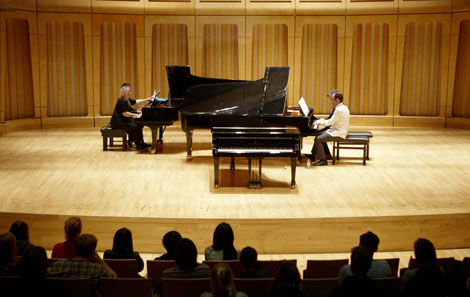
Dawn Hardwick, Piano Circus
It’s hugely important for all musicians to feel at home with collaboration in all forms, but especially pianists, as the instrument itself can feel lonely a lot of the time.
Apart from duets and more traditional chamber music and orchestral playing, it is not that often we get to perform with others due to the instrument’s standalone nature.
A musician needs to generate much of his or her own ‘work’. If you want to play, a lot of the time you need to get out there and make the concert happen yourself, and this is where collaboration started for me.
Take yourselves out of the practise room once in a while and start engaging with the amazing creative energy of the people surrounding you, and marvellous things will begin to happen!
What is your favourite kind of collaboration?
It’s definitely music for multiple pianos, as with Piano Circus.
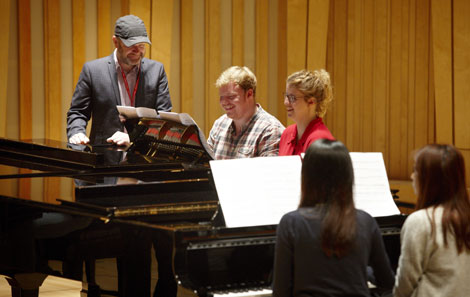
With the piano, each player has an entire orchestra at their fingertips and I find that idea thrilling. And as well as visually exciting, the multiple piano sound world can be stunning.
From percussive grooves, to phase-locking, to intertwining long melodic lines, to extended techniques, I feel that multiple pianos offer the listener a dramatic, intriguing and somewhat provocative musical experience.
I also love music for piano and percussion as the two complement themselves so wonderfully. I have been so incredibly lucky to have worked with both Evelyn Glennie and Colin Currie, and find that being part of something that’s much bigger than myself is very exciting.
What do you enjoy most about your work?
One of the things I enjoy most is the variety. One day I could be performing with an amazing orchestra, the next day working with a composer on a new commission, organising Piano Circus’ next concerts, or practising a concerto. Every day is different and I love that.
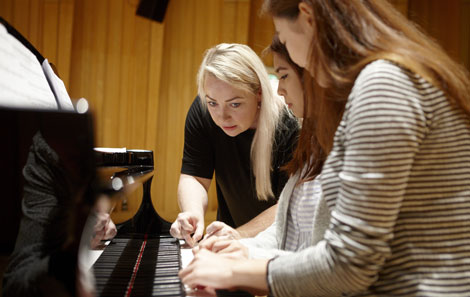
Playing with Piano Circus is one of my great loves, but it definitely comes with its own unique challenges. For a start, logistically, six pianos in one room proves problematic. We constantly have to think about stage space, moving pianos, tuning issues, acoustics and we spend a lot of time working with sound engineers to improve our technological set-up.
This helps us hear ourselves more clearly, and helps the audience hear exactly what they are meant to.
Due to the timbral nature of six fairly identical instruments and the sheer wall of sound that can be produced from them, a lot of our rehearsals are spent being extremely precise with each of our scores, doing a huge amount of listening, and working out exactly how each part fits with another.
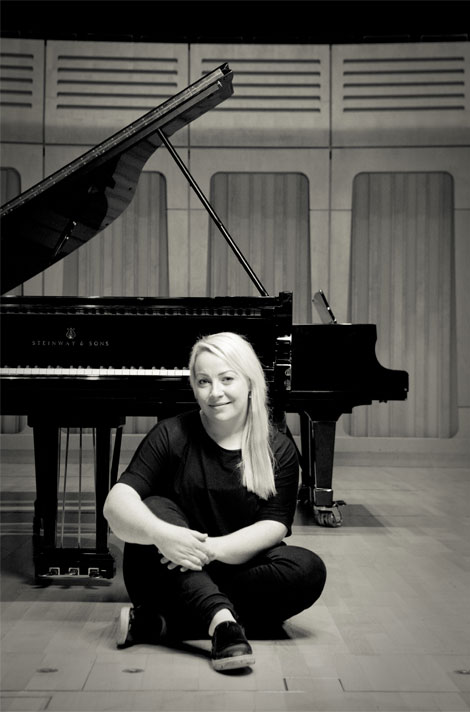
Rehearsals can be a long and drawn out process, but the in-depth knowledge of the intricate workings of each piece is extremely necessary for a successful performance.
On the flip side, working regularly with five other fantastic pianists who are just as passionate about music as I am is wonderful.
You can find out more about Piano Circus on their website: pianocircus.com
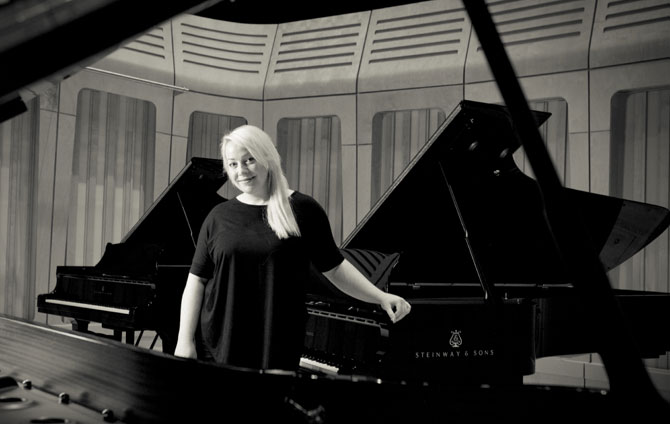
Share on Twitter
Share on Facebook